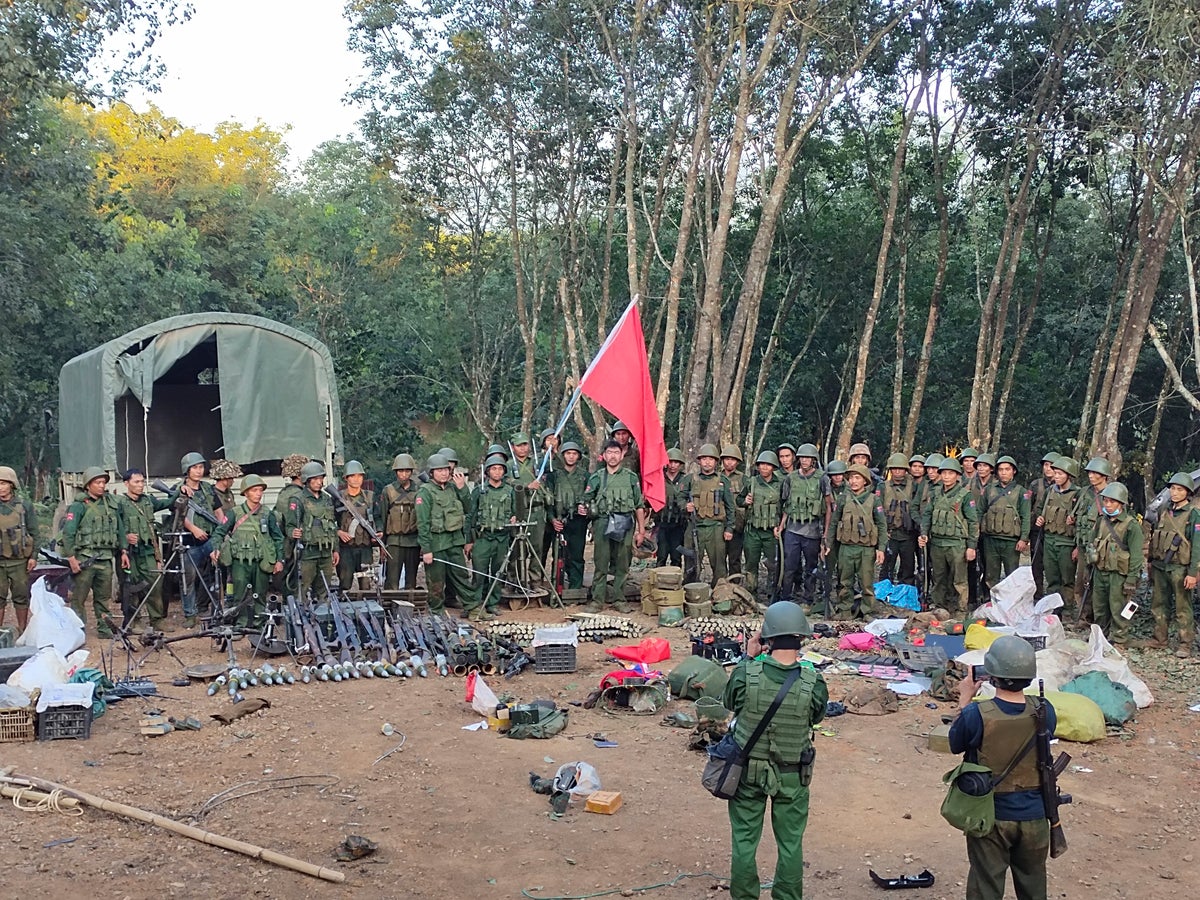
Myanmar’s military government, under pressure in the country’s northeast where it recently lost strategic territory to an alliance of armed ethnic groups, faced a fresh challenge Monday when one of the groups launched attacks in the western state of Rakhine.
The Arakan Army launched surprise assaults on two outposts of the Border Guard Police, a para-military force, in Rakhine’s Rathedaung township, according to independent online media and residents of the area. The attacks took place despite a yearlong cease-fire with Myanmar’s military government.
The Arakan Army is the well-trained and well-armed military wing of the Rakhine ethnic minority movement seeking autonomy from the central government. Rakhine is also known by its older name of Arakan. It's the site of a brutal army counterinsurgency operation in 2017 that drove about 740,000 minority Rohingya Muslims to seek safety across the border in Bangladesh.
Fighting was also reported between the rebels and the military in Minbya, Maungdaw, Mrauk-U and Kyauktaw townships. Arakan Princess Media, an online news outlet, said two Border Guard Police outposts in Rathedaung were seized by the rebels and 22 police in Kyauktaw had laid down their weapons.
The army blocked all roads and residents in the state’s capital of Sittwe have been ordered not to go outside after 9 p.m., the reports said.
The Arakan Army, along with the Myanmar National Democratic Alliance Army and the Ta’ang National Liberation Army -- calling themselves the Three Brotherhood Alliance -- launched a coordinated offensive on Oct. 27 in northern Shan state in northeastern Myanmar along the border with China.
The alliance has claimed widespread victories and the military government has acknowledged losing control of three towns, one of which is a major border crossing for trade with China.
Myanmar’s ruling military council declared martial law in eight townships near the Chinese border, the state-controlled Global New Light of Myanmar reported Monday.
The offensive in the northern part of Shan state was already seen as a significant challenge for the army, which has been struggling to contain a nationwide uprising by the members of Peoples’ Defense Force. The pro-democracy resistance organization was formed after the army seized power from Aung San Suu Kyi's elected government in February 2021. It also set up loose alliances with several of the ethnic armed groups.
"If combat persists, it will open a significant new front for the regime, which is already overstretched with fighting including on its eastern border with China,” Richard Horsey, the senior adviser on Myanmar for the Crisis Group think tank, said in an emailed statement.
The army-installed acting president, Myint Swe, said at a meeting last week of the state National Defense and Security Council that the country is in critical condition and could split up if the military does not effectively manage the problems in Shan state, the Global New Light of Myanmar reported.







